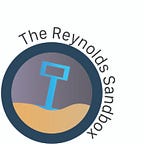An Egyptian Professor Gives Tips on Navigating the U.S. Experience
Hadi Eltahlawi reports on fellow countryman Sherif Elfass who has a wealth of wisdom on how to thrive as an immigrant.
A research associate professor in civil engineering at UNR, and the Imam at the local mosque, the Northern Nevada Muslim Community Center, Sherif Elfass also writes regularly for publications, like the Reno Gazette-Journal, and at times receives backlash for explaining Islamic perspectives.
This doesn’t faze him though. His journey full of accomplishments is a testament to his relentless drive, convictions and energy.
Elfass obtained both his Master’s and Ph.D. degrees from the University of Nevada, Reno after completing his undergraduate studies at the University of Alexandria in Egypt. He’s been in the United States for over a quarter century now.
“I came before the Internet,” said Elfass, “so you used to search universities using books and then write letters, get applications, write them by hand, and so on.” He had a cousin at UNR who came before him since he had to serve for a year in the military, because of the mandatory military service law in Egypt.
Elfass’s expectations before coming to live in the United States weren’t charged with the normal stereotypical image that most Arabs have, since he had visited New York before he pursued his Master’s degree at UNR.
Still adaptation was needed for the Biggest Little City.
“When I went to the West Coast, it was different, culture wise it is different,” Elfass said. “We were trying to blend in… and my values are rooted in the Islamic religion and that was something I wasn’t willing to compromise.”
However, this process of being able to meet with other people from different backgrounds and religions is described by Elfass as a “learning” experience that shaped him in some way.
When he first arrived he communicated with his family through letters. He would write a letter and then wait two weeks for his correspondence to reach his family. Then it would take 10 days for them to respond and an extra two weeks for the return letter to reach him.
“Phone calls were like 32 cents a minute…. And my first AT&T bill was 500$ and my salary was 750$ at that time,” Elfass said of why he mostly wrote letters.
Even in research, he had to go through many books to reach a certain piece of information.
Elfass was always keen to educate people about aspects of Islam, and so he used to be the head of the Muslim Student Association at UNR.
He also took part in an event organized by the Office of International Students and Scholars called the Night of all Nations. “My kids dressed [in] the traditional Egyptian dress when they were back in school (on international occasions),” Elfass said.
“We try to promote the new and old Egyptian identities,” Elfass said. “We also facilitated a lot of trips to Egypt.”
Elfass misses one thing the most about Egypt and that is the social life. “You don’t have here social clubs. In Egypt clubs are not merely athletic, they are more sociable,” Elfass said.
” Social life, great food, and Reno closes at 9 p.m., Egypt starts after 1 a.m. This [is the] kind of life that I miss…I miss the social life part but not the work part.”
Elfass still has some connections maintained to Egypt, as he usually travels there every two years.
Apart from this, he sent his wife and children to stay in Egypt for two years, to allow his children to learn the Arabic language properly. Their last trip to Egypt was back in 2021, when he introduced his family, especially his children, to the tourist side of Egypt.
His main advice to Egyptians coming here is not to change their identity.
“People won’t accept you if you changed your accent, people will accept you if you are a good person,” Elfass said.
“People will accept you if you continue to be yourself,” Elfass said. “9/11 was a classic example, people changed their names and that made other people concerned with them because they felt they were hiding something… people came in the sixties and then changed their names from Mohamed to Mo and Mahmoud to Mike.”
His final insight regarding life in the United States is that people will actually like you if you are being your true self and that once you are here, you have to leave your mark, even if it’s just giving hot cocoa during the winter months to someone in need.
